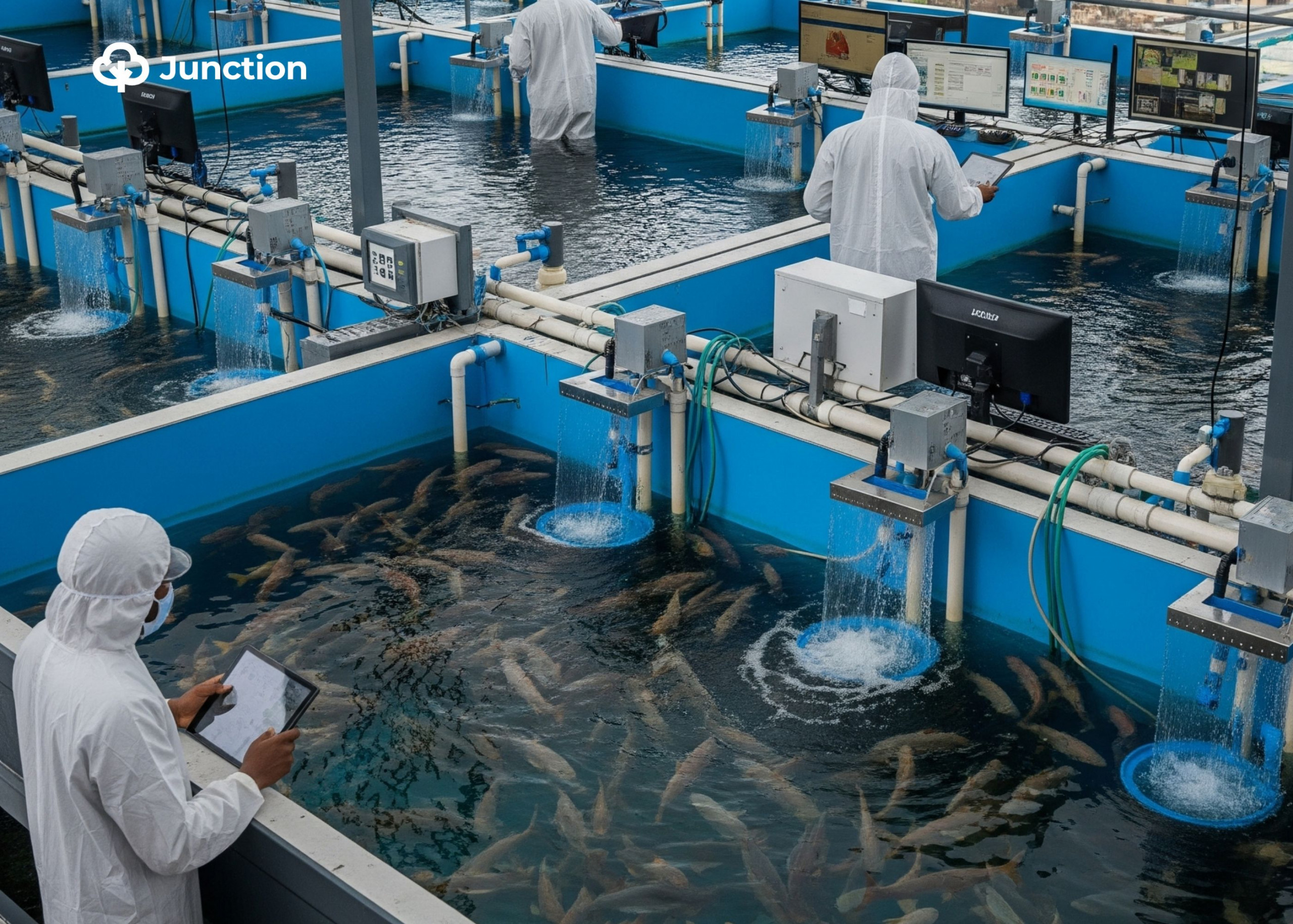News in Brief:
– Lagos State is investing ₦10 billion to support fish farmers with processing and market access to increase local fish production and meet growing demand.
– The project, located in Epe and expected to be commissioned in 2026, is projected to boost the state’s economy and create hundreds of jobs.
The Lagos State government is making a significant investment in aquaculture with a ₦10 billion project aimed at increasing fish production in the state. It also aims to help meet the growing demand for protein nationwide.
The initiative, a collaboration between the Lagos State government and Dula Agro-Services Limited, involves the development of a 35-hectare aquaculture centre in Epe. The project which is set to be commissioned in late 2026, is a key component of Lagos’s strategy to strengthen its food security.
Central hub for fish farming activities
During a recent tour of the facility, the Commissioner for Agriculture and Food Systems, Abisola Olusanya, explained that the Lagos Aquaculture Centre for Excellence (LACE) will function as a comprehensive hub for the state’s fish farming sector.
She revealed that its operations will include the production of fish fingerlings, processing capabilities, and crucially, serving as a reliable buyer for local fish farmers.
Olusanya also stressed that this will streamline the processing, distribution, and marketing of fish produced in Lagos State.
Aiming for affordable fish for residents
Furthermore, the commissioner stated that Governor Babajide Sanwo-Olu’s vision for this Public-Private Partnership is to make fish more affordable for the residents of Lagos. The expansive site in the Igbonla community of Epe is slated for commissioning in the third quarter of 2026.
According to Olusanya, another primary motivation behind the project is to address the challenges faced by local fish farmers, many of whom struggle with a lack of reliable buyers. This often forces them to sell their produce at very low or even no profit, which can discourage further investment in their businesses.
She believes that LACE, with its pre-agreed pricing and efficient offtake arrangements formalised through a Memorandum of Understanding (MoU), will provide much-needed support and stability to the fishing industry.
Additionally, Olusanya pointed out that Lagos State’s abundant water resources create a favourable environment for aquaculture development. She anticipates that this project will position Lagos as a major exporter of high-quality fish, significantly improve food sustainability within the state, and effectively double current food production levels.
State-of-the-art facility and job creation
Ifedolapo Atinmo, the CEO of Dula Agro Services, detailed that the facility will feature 10 ponds supplied with water from the Osun River, which has been tested and confirmed to be of high quality for fish cultivation. Each pond will have the capacity to hold 72,000 fish, with an anticipated average harvest of 60 to 65 tons per batch.
Also, Atinmo noted the significant employment opportunities the project will generate, estimating around 250 direct jobs in production and an additional 150 jobs in the feed mill and processing unit. He projected that at full operational capacity, LACE could contribute approximately ₦50 million to Nigeria’s gross domestic product (GDP).
Rotimi Erogbogbo, the chairman of the board for LACE, echoed Olusanya’s sentiments, stating that the project exemplifies Lagos’s commitment to wealth creation and sustainable development.
Erogbogbo expressed optimism that this initiative will present valuable opportunities for young people, entrepreneurs, and existing farmers in Lagos, offering positive role models in agriculture and resolving issues related to exploitative middlemen.



